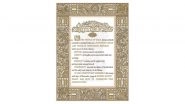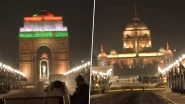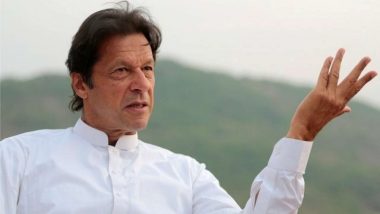Is Pakistan’s prime minister paying obeisance to his masters? It sure sounds like it. During his first visit to the headquarters of Pakistan’s powerful Inter-Services Intelligence, Imran Khan called the ISI as "our first line of defence".
Khan, along with senior Cabinet ministers, was briefed on Wednesday on the various strategic intelligence and national security matters by the senior officials of the Inter-Services Intelligence, an official statement said.
"The Prime Minister lauded contributions of the ISI towards national security especially in the ongoing counter terrorism effort. The Prime Minister said that the ISI is our first line of defence and stands out as best intelligence agency of the world," the statement issued by the Inter-Services Public Relations (ISPR), the media wing of the military said.
Khan told ISI officials that his government and the people of Pakistan firmly stood behind the armed forces and intelligence agencies and acknowledged the "unprecedented achievements" of these institutions, the statement said.
Khan, who was sworn-in as the country’s 22nd Prime Minister on August 18, has been accused of being an ‘establishment candidate’ during the general elections – he was chosen by Pakistan’s military and intelligence establishment and his campaign was supported by them. Pakistan’s general elections were not free and fair as noted by international establishments.
Along with covert support to Imran Khan’s campaign, the military establishment reportedly worked to discredit and divide the PML-N, Nawaz Sharif’s party. Sharif is considered to be anti-establishment as he tried to curb the Army’s power during his term as prime minister as well as work independently in matters of foreign relations.
Nawaz Sharif, has since then been arrested and tried for his ownership of properties in London. His daughter too has been sentenced to seven years in prison.
Over the decades, Pakistan’s military establishment has strengthened its grip over the country’s administration. Whether directly or indirectly, the army has ruled the country since the first Pakistani army chief — Ayub Khan — staged a coup in October 1958. It has also become intertwined with its economy and has reportedly courted the judiciary to its side. In her 2007 book Military Inc: Inside Pakistan’s Military Economy, Dr Ayesha Siddiqa estimates the military’s net worth at more than £10 billion — roughly four times the total foreign direct investment generated by Islamabad in 2007. She found that the army owns 12 per cent of the country’s land, its holdings being mostly fertile soil in the eastern Punjab. Two thirds of that land is in the hands of senior current and former officials, mostly brigadiers, major-generals and generals. The most senior 100 military officials are estimated to be worth, at the very least, £3.5 billion.
Combined with the miltary’s omnipresence and Imran Khan’s lack of accomplishment as a politician, one does not have to think very hard about why he is loud and clear about his support for Pakistan’s defence establishment. (With wire inputs)
(The above story first appeared on LatestLY on Sep 14, 2018 03:22 AM IST. For more news and updates on politics, world, sports, entertainment and lifestyle, log on to our website latestly.com).













 Quickly
Quickly


